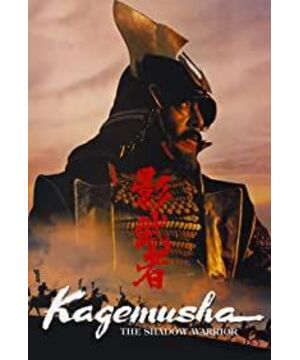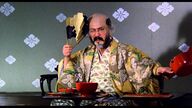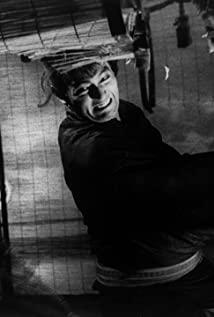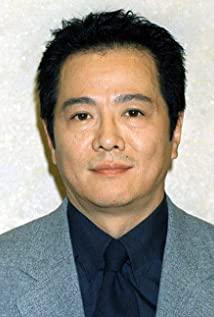Shadow Warrior is the original Japanese name of the movie, which is translated as Shadow Warrior in China. . . I humbly think this translation is purely redundant.
In fact, many Japanese and Chinese words retain more of the charm of ancient Chinese. This group of people in China has to translate it into Mandarin vernacular like boiled water. What kind of mentality is this?
Takeda Shingen, a prince who dominated Japan during the Warring States Period, died on the way to Shangluo. In order to make the enemy think that he is still alive, the daimyo left a will: he will not be mourned for three years after his death, and then find a substitute to replace him. Announcing his own death.
This legend is just a legend, it doesn't match the real history, it's just an unofficial joke. Japanese director Akira Kurosawa's "Shadow Warrior" is based on this legend. The so-called shadow warrior is a stand-in for the big name. So the first time I saw this movie when I was a kid, it was very boring. The three-hour movie told such a simple story, and it ended in tragedy. The successor of the Takeda family, Takeda Katsurai, the son of Shingen, is a very reckless person, similar to Zhang Fei Li Kui in our novels, a hot-headed activist. Xinxuan lived in the shadow of his father in Japan. After his father died, he always wanted to prove that he could do without his father. In front of the scheming and cunning Oda Nobunaga and Tokugawa Ieyasu, Katsura seemed particularly naive, and finally used the Takeda family's elite cavalry to attack the Oda army's musket position in the battle of Nagashino, ruining the Takeda family's last fortune. The Takeda family was in decline.
Later, when I grew up and watched this movie, I was immediately shocked. It felt very good-looking, and it was not the feeling of watching it when I was a child. This is undoubtedly because with the growth of age, some things that I did not understand when I was a child can now be understood. This article is about those things that I did not understand when I was a child but understand today.
The first thing I watched a movie when I was a kid was the battle scenes, the armor of the samurai, the Japanese architecture, the music and of course the muskets. It felt very new at the time, wow, there were muskets in Japan at that time. But apart from the rest, I didn't understand anything. For example, the thief who was recruited as a stand-in, why was he not happy at first, and then he was happy again.
The protagonist of this movie, Zhong Daida, is also a very good actor. He plays two contrasting roles in this movie, one is the lord Takeda Shingen who dominates one side, and the other is a thief who was recruited to be his stand-in. Takeda Shingen is as motionless as a mountain, and his heart is like iron. And that thief is a very low-level character, a gangster in the market. The theme of the first half of the film is how the thief took the task from the beginning of his rebellion to the end, and even knelt down and begged the old official of the Takeda family to let him play the dead Shingen. Zhong Daida not only has to use the same face when playing these two roles, showing two diametrically opposed personalities, but also shows the process of the thief's gradual transformation, which is really not easy.
In fact, until the death of Takeda Shingen, the thief did not change his original intention. He just wanted to steal something from the Takeda family and run away. The thing that made him really change was that he saw Takeda Shingen's body being put in a wine vat and sinking to the bottom of Lake Suwa. This was originally done to prevent the enemy's spies from finding Shingen's corpse for fear of leaking secrets. But this behavior also influenced the thief, and the thief felt that Duke Xinxuan was too great to sacrifice to this extent for the sake of the family. Then, as a trivial character, a small person, and a small trick, it is a great honor for him to fulfill this last wish for Duke Xinxuan.
In the middle of the film, the Takeda family and the Oda family battle wits and courage. The two clues that the Oda-Tokugawa coalition forces retreated from the enemy in a hurry, and the night before the withdrawal of the army, the iron gunner hit a big figure of the enemy army, infer that Takeda Shingen should have been wounded or killed by his own musket. In order to confirm the news, the two old foxes sent their own detectives to spy on the information, and even sent a medical officer to take the opportunity to check whether the fake Takeda Shingen, the thief, had scars from past wars. But because of the thief's superb acting skills, he was able to fool around, making both Oda and Tokugawa think that Shingen was still alive, so they dared not act rashly. In this section, the thief seems to be possessed by Xinxuan, and the frizzy, fragile and timid character at the beginning of the movie disappeared without a trace. He was even able to calmly answer what Katsuyuki Takeda asked, trying to expose his tricky questions. Personally, I feel that at this time, the thief seems to have understood Takeda Shingen's heart, so that when he faces the trap of Shenglai, he can make a decision not to send troops based on his understanding of Shingen, and let outsiders not notice it at all. This Shingen is fake. At this time, the thief could even communicate with Xinxuan's grandson without any obstacles. Xinxuan's grandson could not feel that the grandfather was actually fake. Those old buddies who have followed Xinxuan's battles even have an illusion: the lord is still alive. It seems a bit far-fetched that a thief can actually communicate with one of the princes, and after the death of the great prince, this is incomprehensible to many audiences. This place is also one of the most fascinating and thought-provoking cores of the film. It is whether people with two positions, backgrounds, and experiences that are very different can communicate at the spiritual level. Can a small person understand the heart and thinking of a big person? I think this is actually quite normal.
A person's status and status are determined by the circle in which he lives. But a person's thinking is often not limited to this circle. The spirits and minds encased in these worldly garments may be more ornate than this one, and certainly more vulgar. To put it vulgarly, it means that people can't look at their faces. So it's not really a new thing for two people from different classes to have the same thinking. And many people think that this is almost a miracle, but in fact, he himself has been blinded by this set of worldly things for so long that he himself believes that this set of things is really insurmountable.
At the end of the film, after a horse fall incident, the identity of the thief is discovered, and Takeda Katsurai, who was originally dissatisfied with the old minister's use of shadow warriors to order himself, successfully inherited the family governor. Then he began to implement what he thought was the right strategy, and finally fell into the tricks of Nobunaga and Ieyasu, and lost all the money of the Takeda family. In the last scene of the film, the thief drowned in the water with the blood-stained military flag. After the failure of the Takeda family, the thief actually died for the Takeda family. The self-proclaimed Takeda family orthodox Katsurai used his stupidity and stubbornness to personally bury almost all the belongings his father left to him.
Of course, historically, there are many reasons for the decline of the Takeda family. It is definitely not like the movie, and the real Katsurai is not like this image at all. The ending of the movie is also a kind of artistic processing. It is the heir who is considered by the world to be the most qualified and the most orthodox. He personally ruined the cause, and the thief who is considered by the world as a shadow and a substitute can fully understand Shingen's will and go to the battlefield to prevent the "suicide" of the Takeda family's cavalry. Even after Shingen's career failed, he was buried. This ending seems extremely absurd and seriously violates the inherent understanding of the world. This is also one of the things that shocked me when I watched this movie as an adult. That is to say, are the things we usually think really stand up to scrutiny and fact-checking?
For example, in reality, we will superstitious some people and despise some people. For example, when I browsed Zhihu, I had a very intuitive feeling. Some people with very good profiles are often the first to be invited to answer a certain question, and then the seemingly professional Pap Pap Pap wrote a lot, But I still feel confused after reading his answer. On the contrary, the answers of a few sentences buried in the comment pile can hit the nail on the head. But this kind of comment is often not answered, and there are very few people who agree with it. The author's profile is also average, or even no profile. You see, we always think that the people who can answer a question thoroughly must be those "professionals", as if these people are the only legitimate holders of these truths. But some insights are often hidden in the minds of some small people. As Nobunaga sings in the movie, "Fifty years of life, compared with the longevity of heaven and earth, are like dreams and illusions." This is probably a point at the end of the film. In fact, the thief who was a shadow warrior also fell into a dream in the end, that is, he died for the failure of the Takeda family, but what connection does the Takeda family have with him, he is just a shadow warrior, no matter how much outsiders think he looks like, or a lie Not the dark horse that Xin Xuan rode before his death.
In addition to this theme, this film has a very special place that it was not deliberately vilified and smeared because Oda Nobunaga and Tokugawa Ieyasu were enemies of the Takeda family. On the contrary, in the film, after learning that Shingen was dead, Oda Nobunaga sang a piece of Noh music, a kind of performance of heroes cherishing heroes. I feel that this point is particularly worthy of reference for today's Chinese historical films, that is, when you promote the greatness of a historical figure, you don't necessarily have to hold a bunch of them. Probably starting from the Romance of the Three Kingdoms, Chinese novels especially like to make the characters face-masked and divided into white face, red face, black face and yellow face. Then we more or less continued this routine when we made historical dramas later, but when I watched this "Shadow Warrior", I really didn't feel that way, even the most mentally handicapped Shenglai has his difficulties and psychological activities. , you can also see the pain caused by his father's suppression of him. It is also a rare thing for me to make the characters look like real people instead of the characters in the opera.
Another point is that when Takeda Shingen was mourning, the Takeda family did not kill the shadow warrior, that is, the thief, but gave him a resettlement fee and let him go. This kind of plot will never exist in Chinese historical films, the thief will be 100% silenced. But in Kurosawa's film, the thief survives. I feel that this is also an idealized treatment. Real history, regardless of whether it is China or a foreign country, how can such a person let him out of his control, and what if he is used by the Oda family? When it was Akira Kurosawa's film, it seemed so unreal, so classical, so romantic, so chivalrous. This is also something that is seriously lacking in Chinese historical films today. Today's Chinese historical films seem to have nothing but the dark side of human nature
View more about Kagemusha reviews










